
Harry Baker
Harry is a U.K.-based senior staff writer at Live Science. He studied marine biology at the University of Exeter before training to become a journalist. He covers a wide range of topics including space exploration, planetary science, space weather, climate change, animal behavior and paleontology. His recent work on the solar maximum won "best space submission" at the 2024 Aerospace Media Awards and was shortlisted in the "top scoop" category at the NCTJ Awards for Excellence in 2023. He also writes Live Science's weekly Earth from space series.
Latest articles by Harry Baker

'City killer' asteroid 2024 YR4 could shower Earth with 'bullet-like' meteors if it hits the moon in 2032
By Harry Baker published
There is currently a 4.3% chance that the giant space rock 2024 YR4 will hit the moon in seven years. If this does happen, debris from the nuclear bomb-like impact could trigger a "spectacular" meteor shower that will endanger Earth-orbiting satellites.
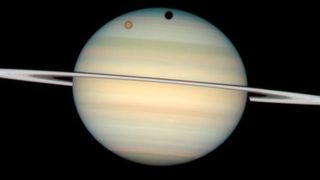
You can see a giant 'hole' shoot across Saturn this summer — and it won't happen again until 2040
By Harry Baker published
There will be several chances to see the shadow of Saturn's largest moon, Titan, pass across the ringed planet's Earth-facing surface over the next few months. The rare spectacle is only visible every 15 years.
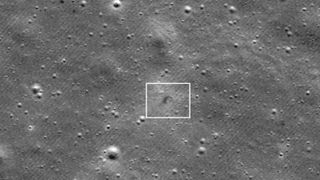
NASA spots Japan's doomed 'Resilience' moon lander from orbit — and it's surrounded by far-flung debris
By Harry Baker published
Spacecraft from NASA and India's space agency have snapped orbital photos of the Japanese lunar lander Resilience after its recent "hard landing" on the moon. Some of the images show pieces of the failed lander strewn across the surrounding surface.
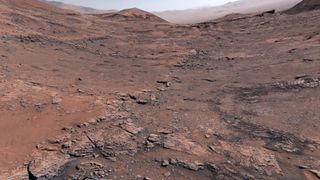
Mars rover captures first close-up photos of giant 'spiderwebs' on the Red Planet
By Harry Baker published
NASA's Curiosity rover has snapped its first images of web-like "boxwork" features on the surface of Mars. The zig-zagging rocks could provide clues about the Red Planet's watery past and whether it once harbored extraterrestrial life.
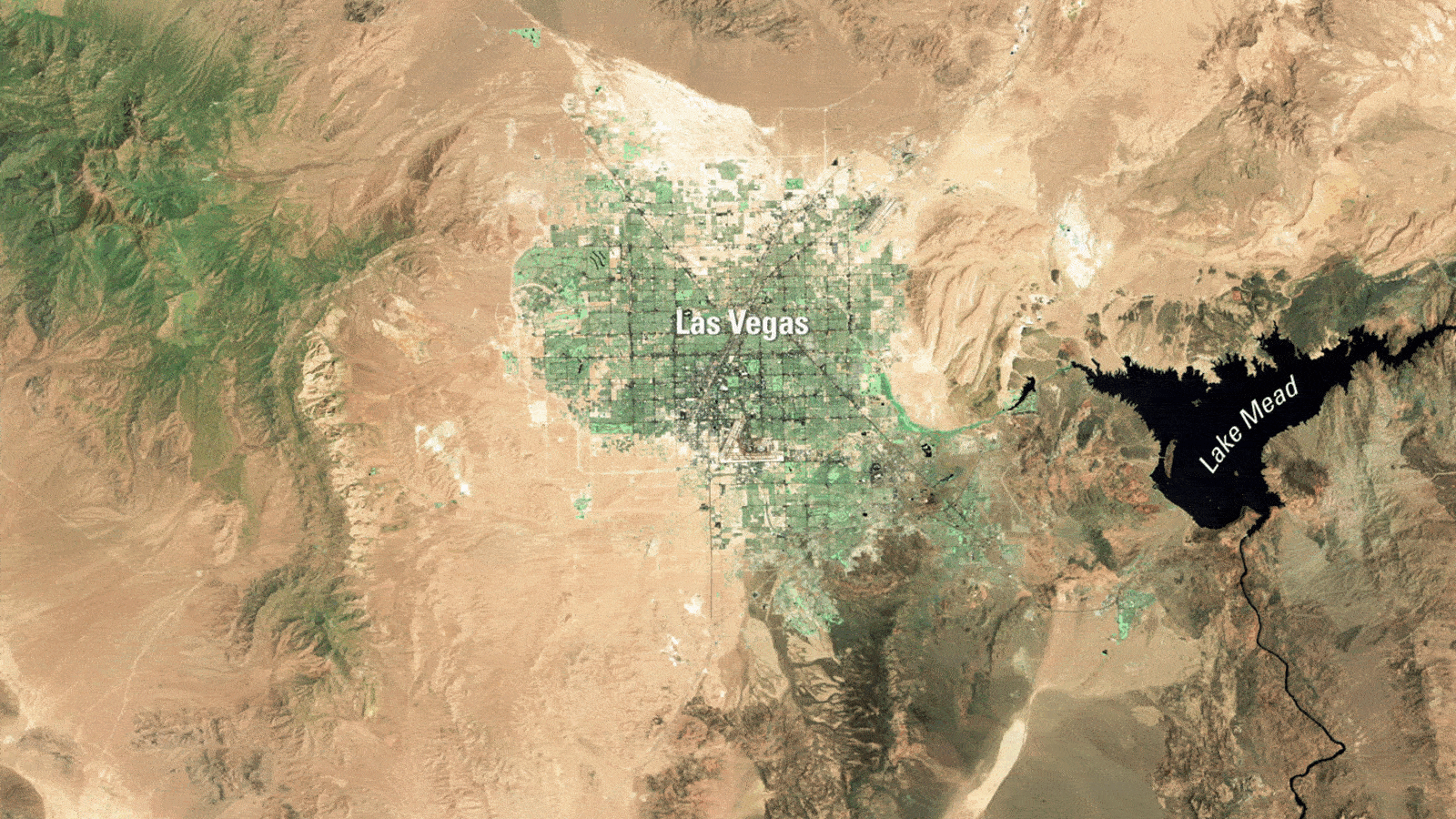
Final photo from iconic US satellite shows how Las Vegas has 'doubled' in size over the last 25 years
By Harry Baker published
Earth from space The final image captured by the recently decommissioned Landsat 7 satellite shows how "Sin City" has nearly doubled in size during the iconic spacecraft's 25-year lifespan.

Mars cozies up to one of the brightest stars in the sky in 'mind-blowing' conjunction photo
By Harry Baker published
A superbright Mars is currently visible alongside Regulus, the "Heart of the Lion" star located around 79 light-years from Earth.
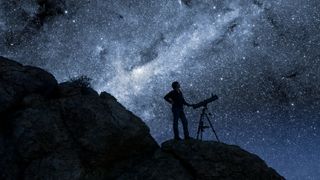
A 'new star' has exploded into the night sky — and you can see it from North America
By Harry Baker published
The never-before-seen "nova," dubbed V462 Lupi, recently appeared in the constellation Lupus, after suddenly becoming 4 million times brighter. The shining explosion is visible to the naked eye and can be seen from parts of North America.
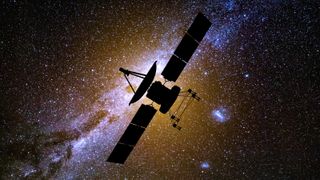
Satellite coated in ultra-dark 'Vantablack' paint will launch into space next year to help combat major issue
By Harry Baker published
Researchers from the U.K. plan to launch a CubeSat covered with a newly formulated "hull-darkening" Vantablack paint into space next year. If successful, the coating could help mitigate light pollution from private satellite "megaconstellations."
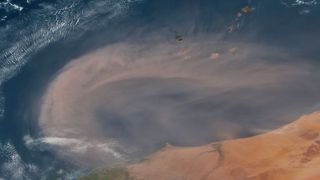
Giant 'Saharan dust' plume swirls around Africa a week before it hit Florida
By Harry Baker published
Earth from space A recent satellite photo captured a giant comma-shaped cloud of "Saharan dust" being blown above the Atlantic Ocean. The hazy mass hit North America a week later.

Surprised scientists discover the 'dark sides' of Uranus' moons are the wrong way around
By Harry Baker published
Researchers armed with the Hubble Space Telescope have revealed that some of Uranus' largest moons have one side brighter than the other — but not the side they were expecting.

Friday the 13th solar storm could bring auroras to 18 US states this weekend
By Harry Baker published
Space weather experts warn that a "moderate" geomagnetic storm could rock Earth over the weekend, potentially lighting the skies with vibrant auroras across large parts of the U.S. and Europe.

Monster black hole jet from the early universe is basking in the 'afterglow' of the Big Bang
By Harry Baker published
NASA's Chandra X-ray Observatory has captured a striking image of a distant quasar from the "cosmic noon," including a giant energy jet "being illuminated by the leftover glow from the Big Bang itself."
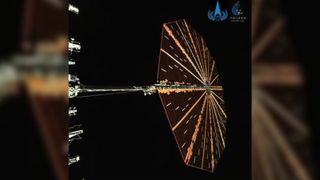
First-ever image of China's mysterious 'quasi moon' probe revealed weeks after it secretly launched into space
By Harry Baker published
A new image released by China's space agency offers the first glimpse at the Tianwen 2 spacecraft, which is en route to collect samples from one of Earth's "quasi-moons". The photo shows some surprising similarities with a current NASA probe.
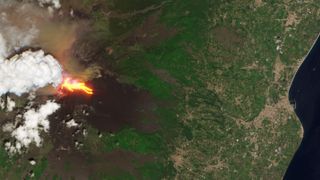
'River of fire' flows from Mount Etna during 'crazy' explosive outburst
By Harry Baker published
Earth from space A recent satellite image captured a glowing river of lava flowing down the flank of Europe's largest active volcano as it spectacularly blew its top and unleashed a towering plume of ash, smoke and toxic gases into the skies over Sicily.
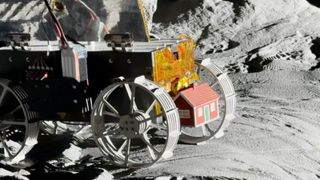
Japanese spacecraft goes dark during attempted moon landing, holding fate of European rover in question
By Harry Baker last updated
The private Japanese spacecraft "Resilience" has seemingly been destroyed in a "hard landing" on the moon on Thursday. The lander was carrying what would have been the first European-built rover to explore the moon.
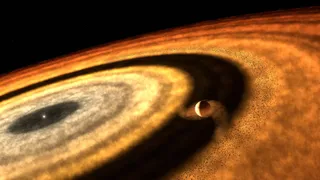
James Webb telescope spots 'groundbreaking' molecule in scorching clouds of giant 'hell planet'
By Harry Baker published
A pair of new studies has revealed that the hellish skies of exoplanet WASP-121b contain silicon monoxide gas, which has never been found in any planetary atmosphere to date.

An 'invisible threat': Swarm of hidden 'city killer' asteroids around Venus could one day collide with Earth, simulations show
By Harry Baker published
A new study suggests that unidentified "co-orbital asteroids" around Venus may have the capacity to impact our planet in the future, with potentially devastating consequences. However, there is no immediate threat.
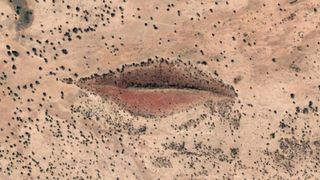
The mysterious hill in Sudan that looks like 'landlocked lips'
By Harry Baker published
Earth from space A 2012 Google Earth photo captured a hill formation in Sudan that bears a striking resemblance to human lips. Not much is known about the unusual landmark, but researchers have guessed how it formed.
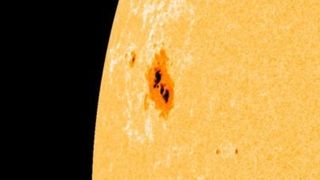
Giant 'senior citizen' sunspot on 3rd trip around the sun could break a century-old record
By Harry Baker published
A large sunspot has just reappeared on the sun's Earth-facing surface, almost two months after it first emerged. The unusually old dark patch remains stable and could be on course to become the longest-lived sunspot on record, experts claim.

'No radio astronomy from the ground would be possible anymore': Satellite mega-swarms are blinding us to the cosmos — and a critical 'inflection point' is approaching
By Harry Baker published
Invisible radiation leaking out of private satellites, like SpaceX's Starlink spacecraft, is disrupting radio astronomers' ability to detect important signals from across the universe. If left unchecked, we could reach an "inflection point" beyond which we can no longer properly study the cosmos, researchers warn.
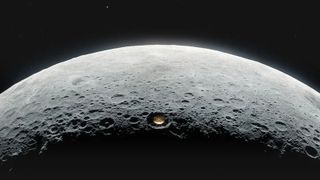
NASA plans to build a giant radio telescope on the 'dark side' of the moon. Here's why.
By Harry Baker published
A NASA-funded plan to build a large radio telescope on the moon's far side is nearing final approval and could become a reality by the 2030s, researchers say. The ambitious project will help safeguard astronomy from satellite "megaconstellations" — and help scientists unravel more of the radio spectrum.

How many satellites could fit in Earth orbit? And how many do we really need?
By Harry Baker published
The number of satellites orbiting Earth is rising fast, thanks to private companies such as SpaceX. But just how big will these "megaconstellations" become? And what problems might they cause?
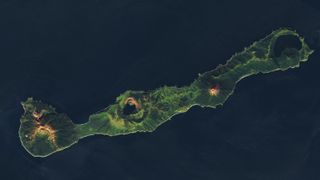
Quadruple volcanoes on secret Soviet military base linked to climate-altering eruption 200 years ago
By Harry Baker published
Earth from space A 2024 satellite photo shows four end-to-end volcanoes perfectly spaced out along the Russian island of Simushir. One of these peaks was the site of a surprise eruption that temporarily cooled the Northern Hemisphere in 1831.
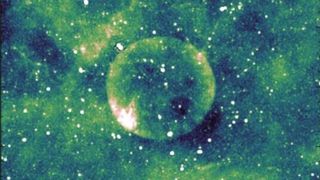
Astronomers spy puzzlingly 'perfect' cosmic orb with unknown size and location
By Harry Baker published
New radio images reveal an unusually faint and symmetrical supernova remnant, nicknamed Telios, lurking just below the galactic plane of the Milky Way. However, they cannot tell exactly where it is, how big it is or how it formed.
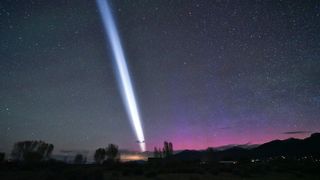
'White streak' appears over US as China dumps experimental fuel in space
By Harry Baker published
A recent launch of China's Zhuque-2E rocket triggered a giant white streak of light to appear above at least seven U.S. states after deploying six satellites into low-Earth orbit. The light show, which was visible in at least seven states, was the result of a "fuel dump," experts say.
Get the world’s most fascinating discoveries delivered straight to your inbox.
